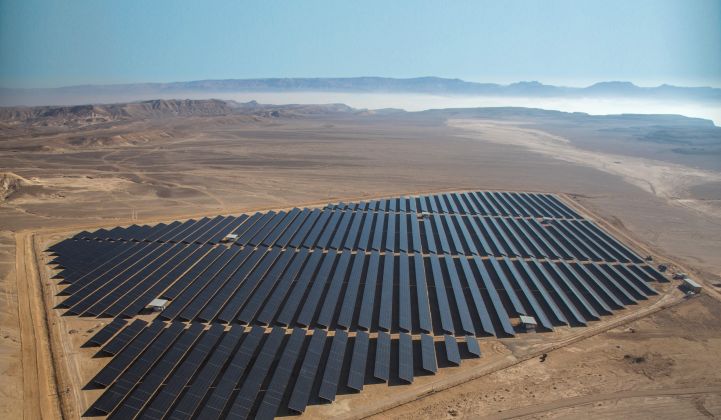The German utility RWE will expand its solar and storage capacity by purchasing Belectric Solar and Battery Holding GmbH. RWE's renewable energy subsidiary, Innogy SE, agreed to pay in the "high double-digit-million euro range" for Belectric. The deal is expected to close early next year.
Faced with money-losing coal power and customer defection to rooftop solar, European utilities have been hard at work expanding revenue streams beyond the traditional production and sale of electricity. RWE, which serves 23 million customers in Europe, has approached this challenge with a strategy of becoming a home and energy services provider. It set up a $144 million venture capital fund to invest in promising Silicon Valley startups, and became the first European utility to widely deploy Bidgely's HomeBeat app, which lets customers track their energy usage down to the appliance level.
Several utilities have made inroads on self-consumption programs, including RWE, fellow German utility E.ON and French utility EDF. By providing solar and storage resources for their own customers, utilities can preserve some revenue even if they no longer sell as much power in the traditional sense. E.ON has been particularly active in the energy storage sector, investing in American storage company Greensmith and developing storage projects at the commercial and industrial and utility scale. EDF has a growing renewable energy division that already boasts 600 megawatts of wind power capacity.
The Belectric acquisition will strengthen RWE's portfolio of grid-scale renewable generation. The company has installed a total photovoltaic capacity of 1.5 gigawatts peak across 280 plants and rooftops, and it operates and maintains more than 1 gigawatt of peak solar capacity. Belectric designs and manufactures its systems out of plants in Germany and India.
Notably, Belectric pioneered the use of 1,500-volt solar systems in 2012, well above the 1,000-volt systems that are standard in Europe. GTM Research identified the adoption of 1,500-volt systems as "the most immediate opportunity that we see for utility-scale PV system cost reduction." Now, 1,500-volt parts are commercially available for every system component, but product availability has hampered further adoption of 1,500-volt technology in Europe.
Belectric can now count on a steady pipeline of projects for RWE, in addition to its ongoing business elsewhere in the Middle East, India, South America and the U.S.
“In acquiring Belectric, we are bolstering our skills in the area of renewables and acquiring extensive expertise, as well as many years of operational experience with solar technology," said Hans Bünting, chief operating officer of renewables for Innogy SE, in a statement. "The experienced team at Belectric will contribute to taking Innogy forward with large-scale solar projects.”
Innogy itself is going through a change -- that name didn't exist until this summer, for one thing. RWE is realigning itself with Innogy as its decentralized renewable energy core business, staffed by 40,000 of RWE's 60,000 employees. It's a bold move and one that American utilities will need to watch as they weigh how cautious or daring to be in the energy transition ahead.



